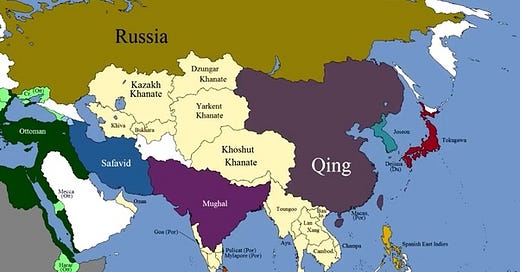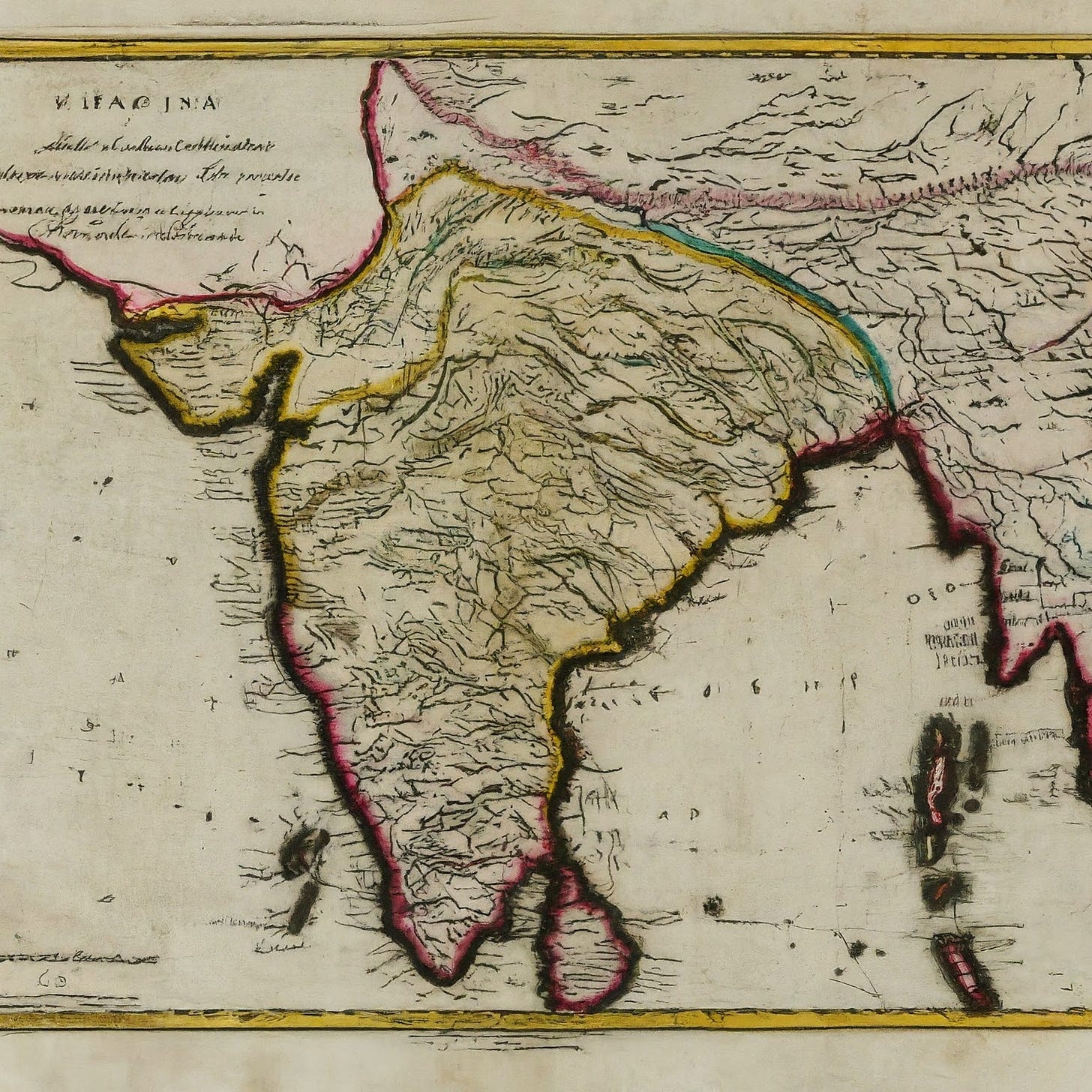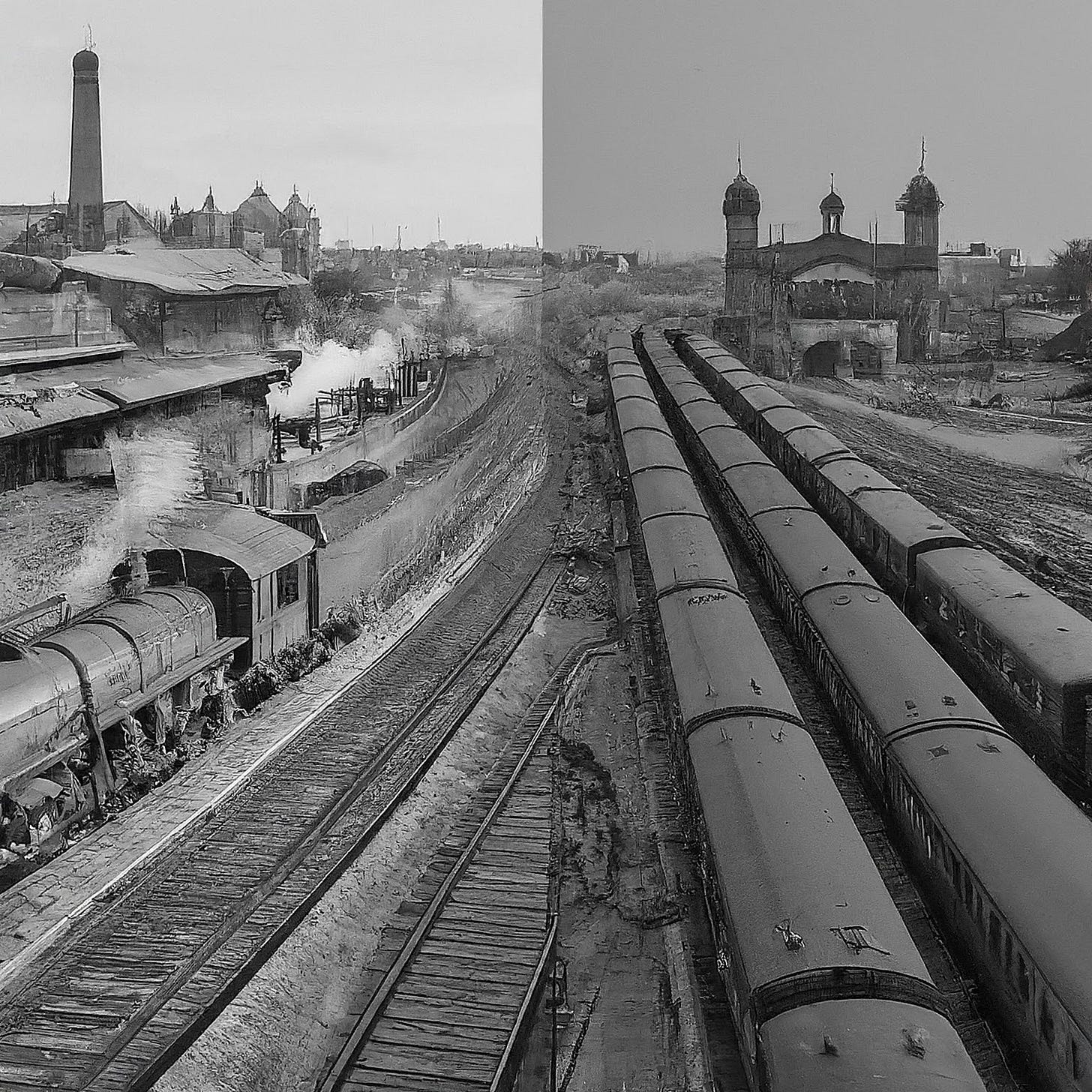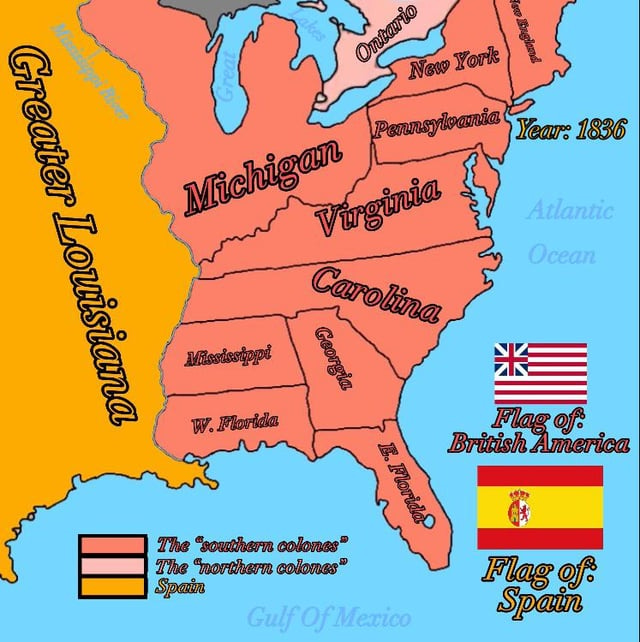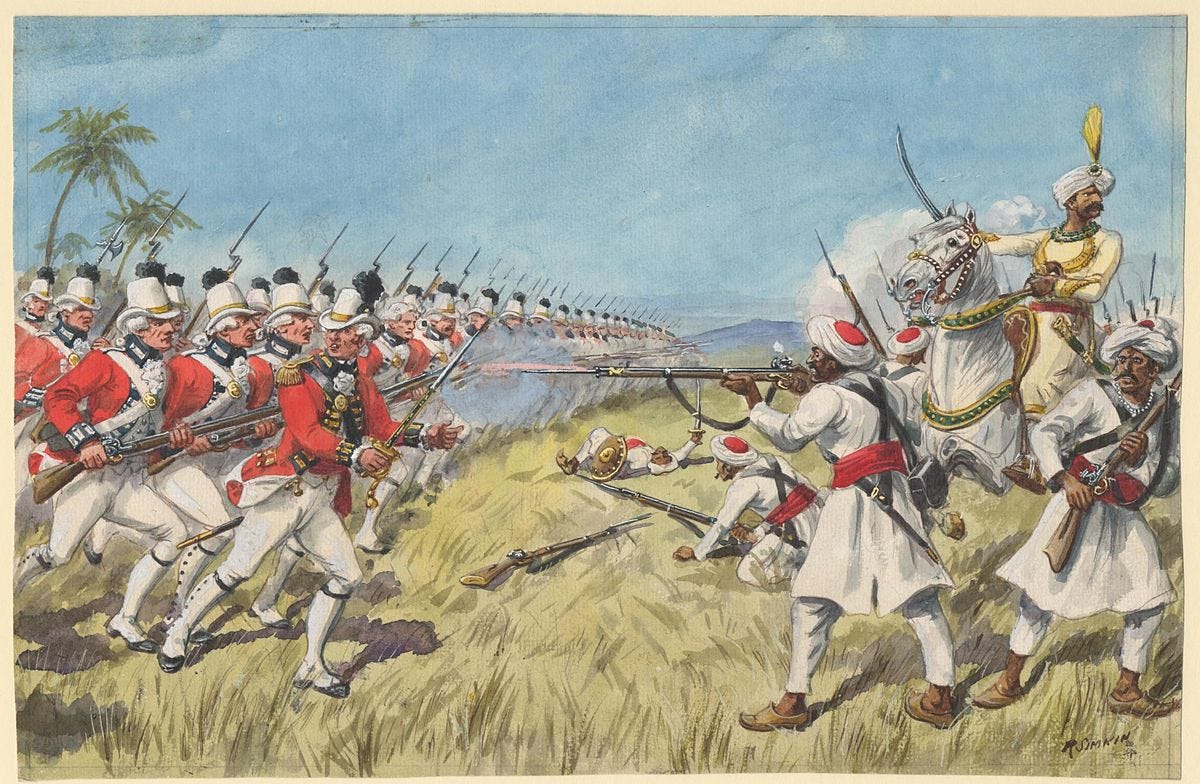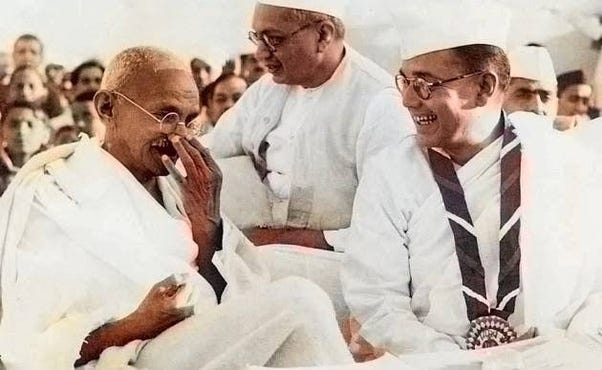Imagine India: What If Britain Never Ruled?
Ever wondered what India might be like if history took a sharp turn? Today, we're diving into an unwritten chapter where the British never set foot on Indian soil!
What If The British East India Company Never Took Down The Mughal Empire (1500s–1750s)?
Back in the day, the Mughal Empire ruled most of India, but it was getting weaker. That's when a British trading company, kind of like a fancy shop owner, saw a chance and started taking over bits of land. But what if they hadn't?
Here are a few possibilities:
A Renewed Mughal Empire:
The Mughals were a powerful empire before the EIC's arrival. Without the EIC's interference, they might have been able to address their internal weaknesses and remain a dominant force in India.
Akbar III (The One Who Never Was), could have ascended the throne in the early 18th century.
Quick Fact: Who he would have been?
He would have been the son of Akbar II. H is also known as Bahadur Shah II. He was the last Mughal emperor and was exiled to Rangoon as he participated in the 1857 revolt.
Rise of a Different Power: The Marathas (1750s onwards):
In our alternate timeline, with no British presence, the Marathas, another powerful Indian Empire rising in the west, could have potentially filled the void left by the Mughals.
The most likely candidate to fill the power vacuum and potentially unify India would have been Raja Ram Bhonsle.
Their expansion might have led to a unified India or a collection of powerful regional states, similar to Europe.
A Fragmented India:
India might have ended up as a bunch of smaller countries, kind of like Europe. This might sound messy, and it probably would have been tougher to build factories and schools without a big boss in charge.
What Would Have Happened to the Economy and Infrastructure?
Before British rule, India was a much richer country.
In 1700, India's share of the global economy was 25%, and India was a major exporter of textiles, indigo, spices, and other goods.
British rule led to a decline in India's economic status.
4 Positive Sides to Look At:
Think about it - without the British needing all those spices and tea from India, maybe their whole empire wouldn't have gotten so big.
This, in turn, could have changed a ton of other historical events, like wars and stuff.
But hey, on the flip side, India might have avoided those terrible famines that happened under British rule in the late 19th century. These famines were partly caused by policies that prioritized cash crops like cotton over food grains.
For example, the British diverted food resources away from Bengal and Bihar during World War II, which contributed to a famine in those regions.
An independent India could have focused on food security, potentially averting such large-scale famines.
Negative Side: Industrialization might have been slower
Without a centralizing force like the British Raj, industrialization in India might have been slower. The British, motivated by resource extraction, invested in infrastructure like railways primarily to transport goods to ports.
In this alternate timeline, independent Indian states might have prioritized internal development, leading to a more decentralized network of infrastructure projects.
What Would Have Happened to Global Trade and Geopolitics?
No Opium Wars
There would not have been opium wars between Britain and China. The British East India Company forced China to accept opium imports from India. This led to widespread addiction in China and ultimately to the Opium Wars.
Without British control of India, the opium trade might not have happened.
India would have limited poppy cultivation for medicinal purposes.
Focusing on other cash crops for export, such as spices or textiles.
No American Revolution
The American Revolution might not have happened. The British were able to focus their military resources on fighting the American colonists because they had a large and stable empire in India.
Without this empire, they might not have been able to spare the troops to fight the American Revolution.
A Strong Sense of National Unity in India Might Not Have Developed Without British Rule
Before British dominance, India was a land of diverse kingdoms and empires. People's loyalties were primarily to their local rulers or regional identities. A unifying force like British colonialism, for all its negatives, was a catalyst for a pan-Indian identity.
Common Enemy: The British Raj, with its centralized administration and perceived arrogance, provided a common target for resentment. This resentment could be channeled into a national movement for independence, fostering a sense of "us" versus "them."
No Gandhi: Without a strong national movement, Gandhi may not have become the iconic figure he is today.
No Subhash: Without a common enemy like the British Raj, Bose's brand of nationalism might not have found fertile ground.
Lastly
History is never straight. It is hard to predict a certain event that would have occurred if not for this. This alternate timeline paints a picture of a vastly different India.
While economic development might have been slower, the potential for a more peaceful and food-secure nation is undeniable. Culturally, India could have preserved its unique identity without the overlay of British influence.

